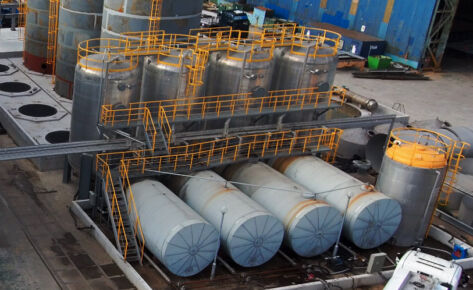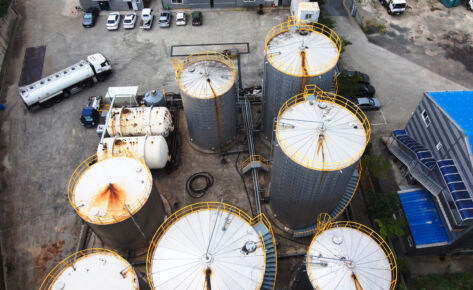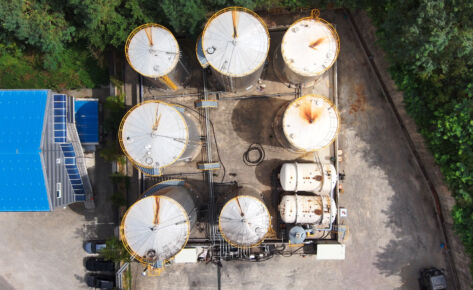Sustainable Future Energy Expansion
Establishing a Cooperative Green Industrial Ecosystem
Establishing a Cooperative Green Industrial Ecosystem, Direction of Implementation
Bio heavy oil is a feedstock used to reduce emissions of environmental pollutants by replacing B.C oil, which is traditionally used in thermal power plants. It is an environmentally friendly fuel that is refined and processed to meet fuel quality standards from main raw materials such as animal and vegetable fats, biodiesel, and by-products. [It reduces sulfur compound emissions by 99%, nitrogen oxide by 39%, fine dust by 28%, and greenhouse gases by 85%].
Bio Diesel FAME is the most widely used biofuel, commonly used alongside bioethanol. It refers to pollution-free fuel made from raw materials such as vegetable oils like soybean oil, rapeseed oil, waste plant oils, and seaweed oil, as well as animal fats like those from cows and pigs. When a catalyst is added to oils (animal or vegetable), it reacts with alcohol to break them down into three molecules of alkyl esters and glycerin. The alkyl ester produced in this reaction is known as biodiesel. It is primarily used as an additive to diesel fuel for diesel vehicles or as a standalone vehicle fuel.
Biodiesel, which is gaining attention as an eco-friendly alternative to diesel, can also be produced from oil-containing biomass, including oils. Rapeseed oil that has been esterified into RME (Raps-Methyl Ester; Europe) and soybean oil esterified into SME (Soya Methyl Ester; USA) are widely used. Sunflower oil, palm oil, used frying oil methyl ester (UFOME), tallow methyl ester (TME), and others are also used.
- ‘International Maritime Organization (IMO) / International Air Transport Association (IATA)’
Sulfur Oxide (SOx) Environmental Regulations
Greenhouse gases in the transportation sector, including aviation and maritime transport, are primarily generated from the use of petroleum-based fuels. Aircraft and ships, in particular, emit substantial amounts of greenhouse gases during the process of lifting heavy structures with explosive propulsion.
Sulfur oxides (SOx), which contribute to acid rain, are emitted during this process. In terms of air pollution, ships account for approximately 13% of total emissions. IMO and IATA are regulating the use of sustainable fuels to achieve carbon neutrality.
The International Air Transport Association (IATA), a coalition of airlines, passed a resolution last year aiming to achieve carbon neutrality by 2050 to combat climate change. The plan is to achieve 65% of the total reduction through the use of sustainable aviation fuels (SAF).
The International Maritime Organization (IMO), which has 174 member countries, decided to significantly strengthen regulations by enhancing the sulfur content limit in ship fuel oil from 3.5% to 0.5% starting from January 1, 2020, for all ships worldwide.












